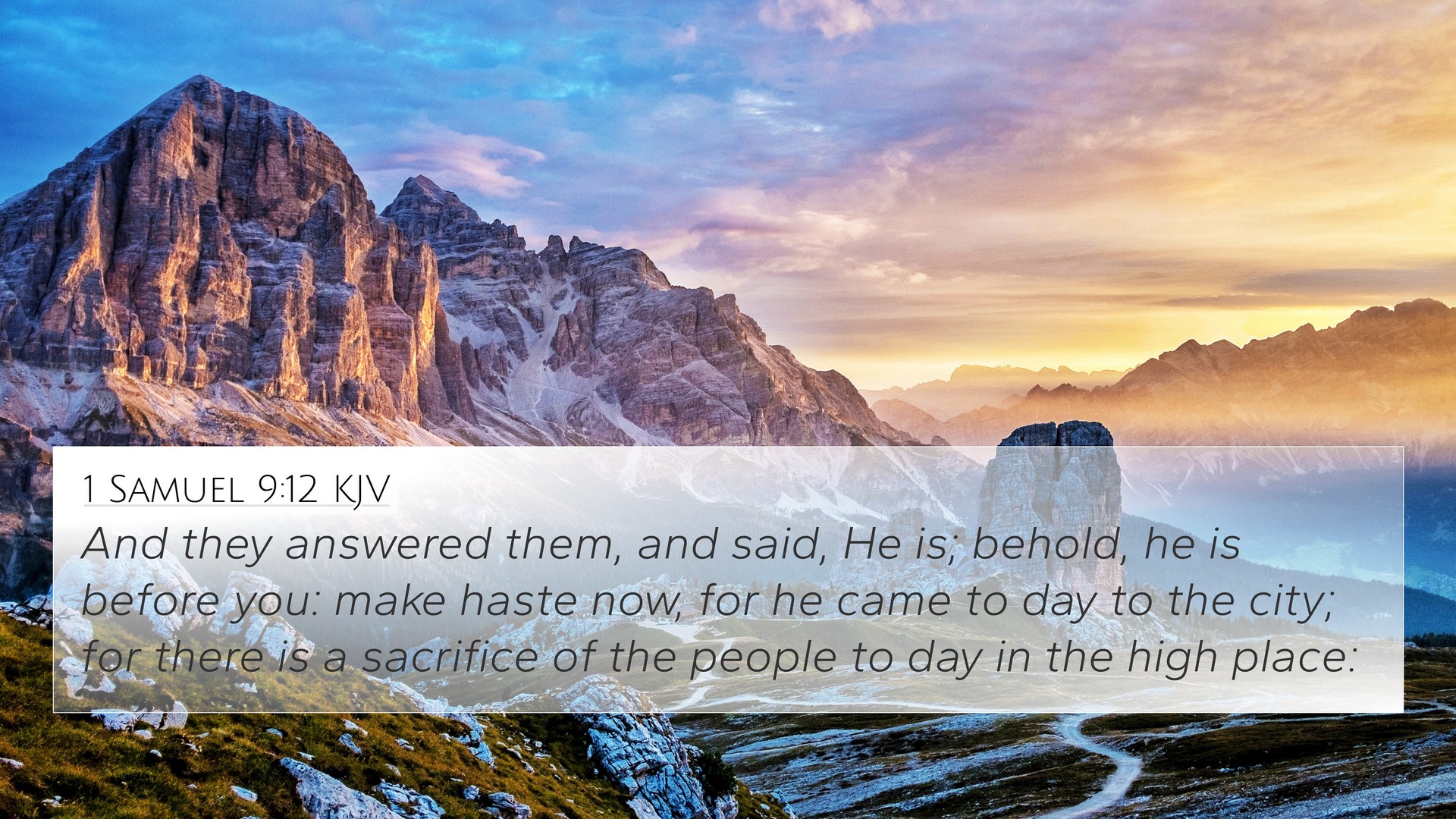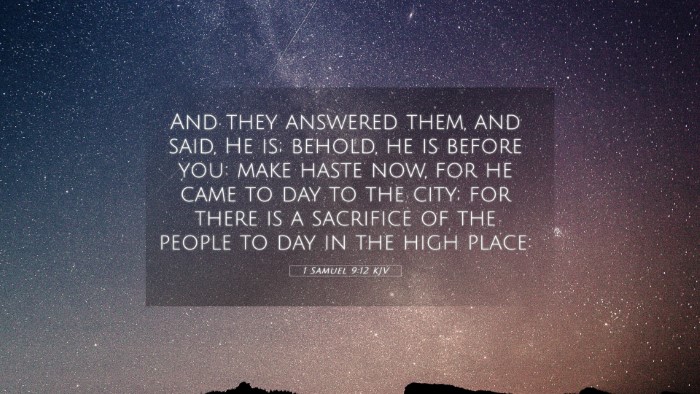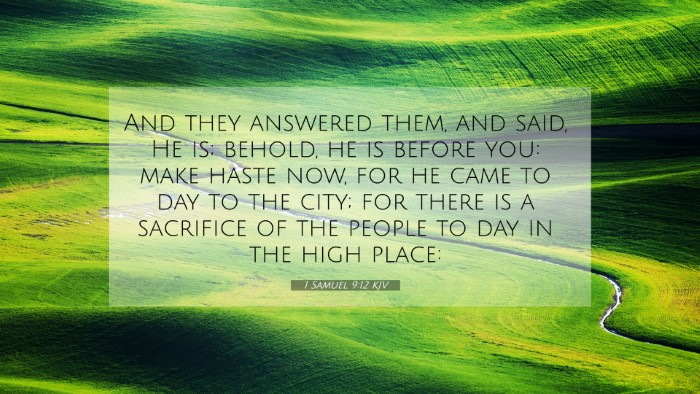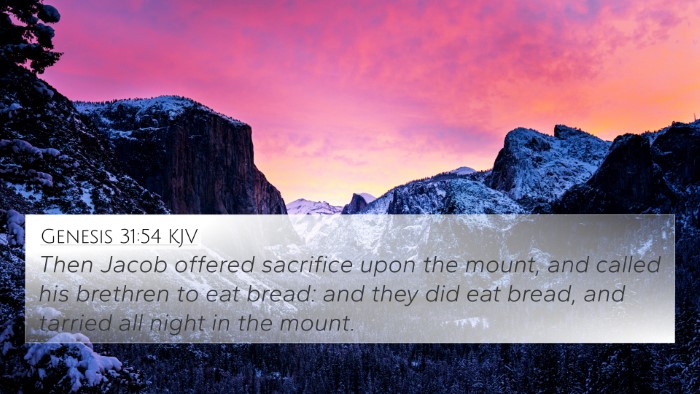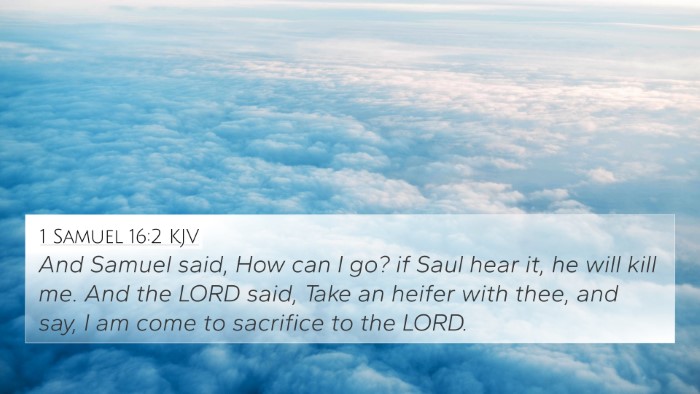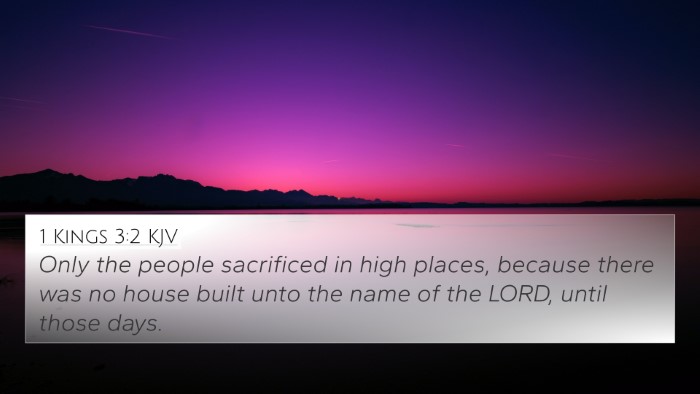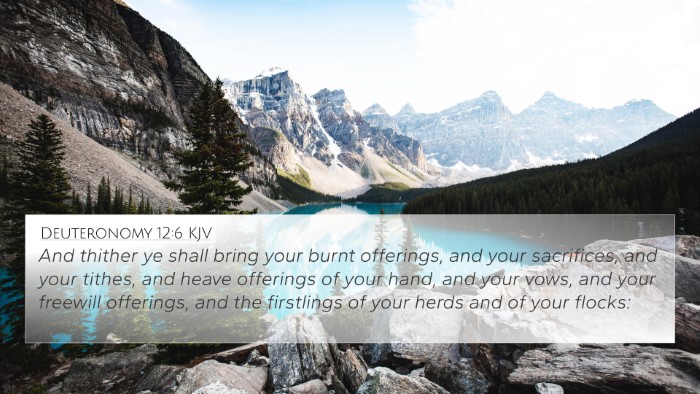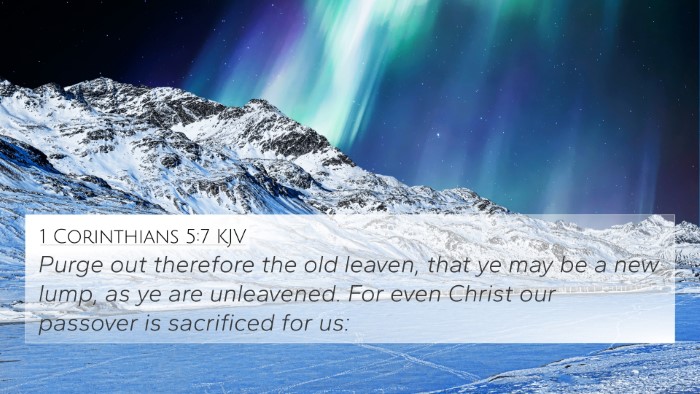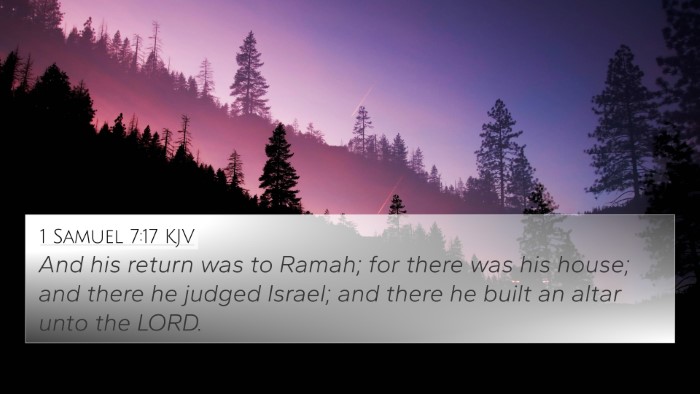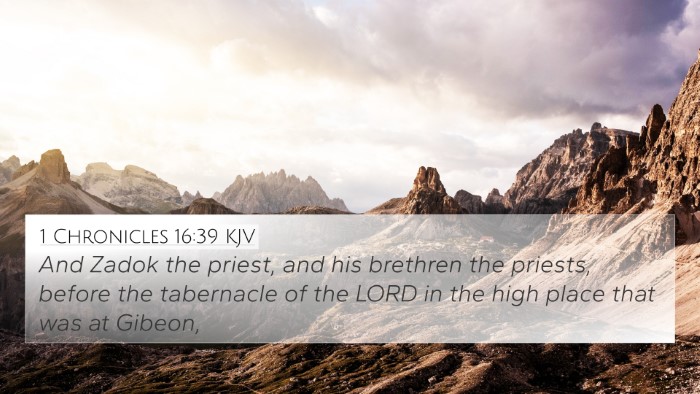Understanding 1 Samuel 9:12
1 Samuel 9:12 states: “And they answered and said, He is behold, he is before you; make haste now; for he came today to the city; for there is a sacrifice of the people today in the high place.”
This verse occurs in a narrative context where Saul is being led to encounter Samuel, who is to anoint him as king. The verse implies significant details about the cultural practices of the time, the significance of sacrifice, and the expectations of leadership. Through the insights of various public domain commentaries, an enriched understanding of the verse unfolds.
Commentary Insights
Matthew Henry's Commentary: Henry emphasizes the divine orchestration in Saul's meeting with Samuel. He points out the sequential unfolding of events: Saul and his servant are seeking lost donkeys, but the journey leads them to a much greater purpose. The mention of the sacrifice underlines the religious customs of the Israelites, reinforcing the importance of divine blessing in leadership.
Albert Barnes' Notes: Barnes focuses on the cultural context of sacrifices in Israel. He explains that these sacrifices were often communal and tied closely to significant national decisions. The urgency in the servant's warning that Saul should hurry reflects a prophetic urgency, hinting that Saul's appointment as king is a vital national interest, aligning with God’s plan for Israel's governance.
Adam Clarke's Commentary: Clarke discusses the significance of "high places" in Israelite worship. He notes that although God eventually established a central place for worship, the patterns established in this verse are critical. The anticipation of Saul's arrival at the sacrifice suggests an intersection of personal destiny with national destiny and highlights God’s providence in using everyday events to fulfill divine purposes.
Key Themes and Connections
The verse draws on several essential themes:
- Divine Direction: Saul's journey is a portrayal of how God’s guidance often leads individuals to their divine purpose.
- Leadership and Accountability: The implications of receiving divine appointment come with the weight of responsibility towards the people.
- Cultural Practices: The details surrounding the sacrifice illustrate the religious culture of ancient Israel, emphasizing community and worship.
Bible Cross-References
To deepen the understanding of 1 Samuel 9:12, the following cross-references illustrate interconnected themes and narrative parallels:
- Exodus 18:21: Discussion of appointing leaders to assist in guiding the people effectively.
- 1 Samuel 10:1: The actual anointing of Saul by Samuel highlights the fulfillment of the earlier prophecy.
- 1 Samuel 9:16: God’s revelation to Samuel about providing a ruler for Israel.
- Deuteronomy 17:15: Instructions about choosing a king under God’s guidance.
- 1 Chronicles 10:1-14: The account of Saul's death, showing the trajectory of divine leadership.
- Hebrews 5:4: Discussion of divine appointment in leadership roles, linking spiritual authority with biblical precedent.
- Proverbs 16:9: The theme of God directing our paths and purposes as seen in the unfolding of Saul’s journey.
Conclusion
1 Samuel 9:12 is not just a historical account but serves as a crucial pivot in understanding divine leadership and God’s method of guiding individuals toward their appointed roles. Utilizing proper tools for Bible cross-referencing enhances both personal study and group discussions, revealing the rich tapestry of connections within Scripture that illuminate God's ongoing purpose throughout the ages.
By engaging with this passage, believers are encouraged to seek further cross-references and thematic connections within the Bible, deepening their understanding of God’s Word and the inter-Biblical dialogue that exists across the pages of Scripture.
